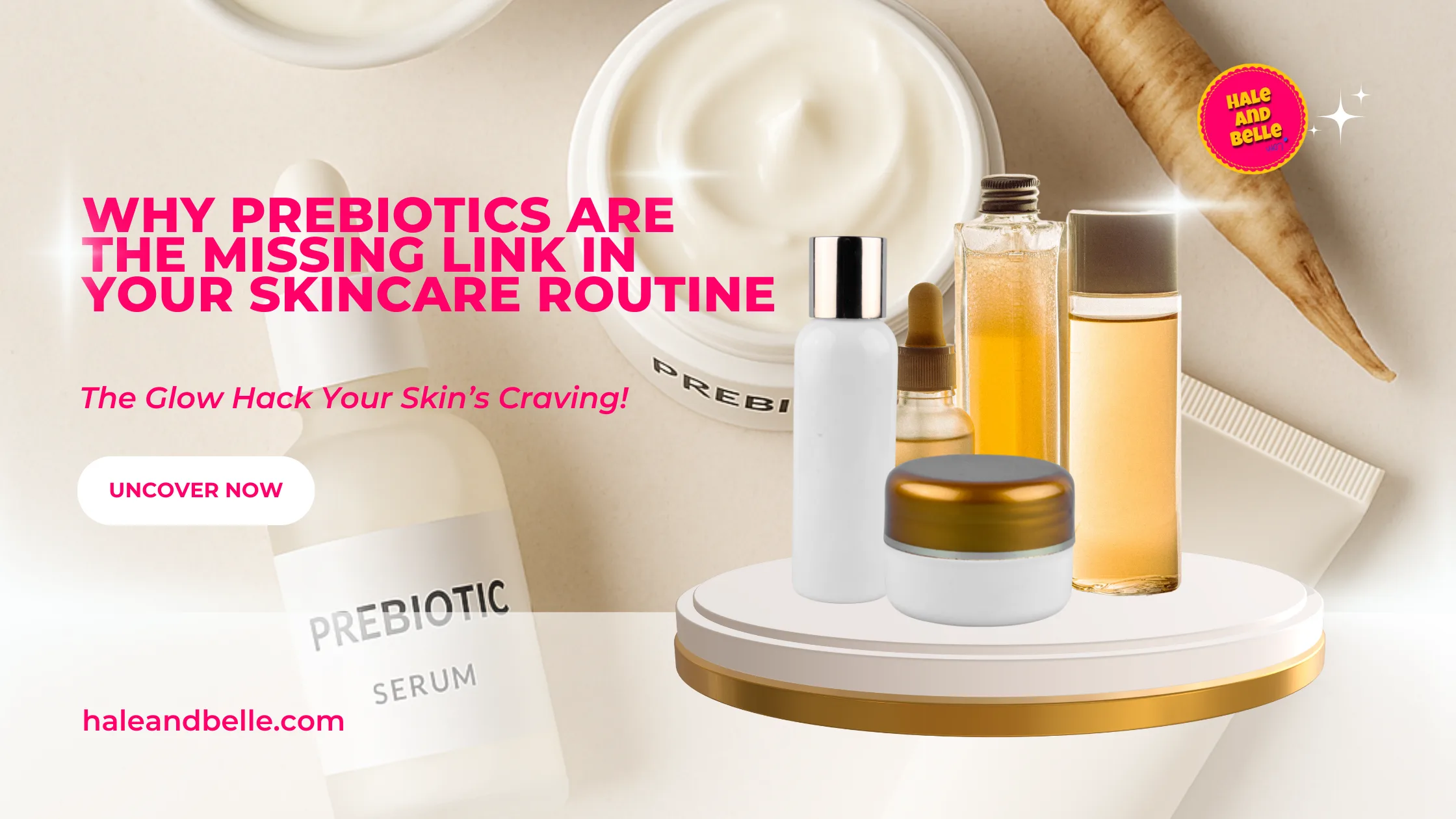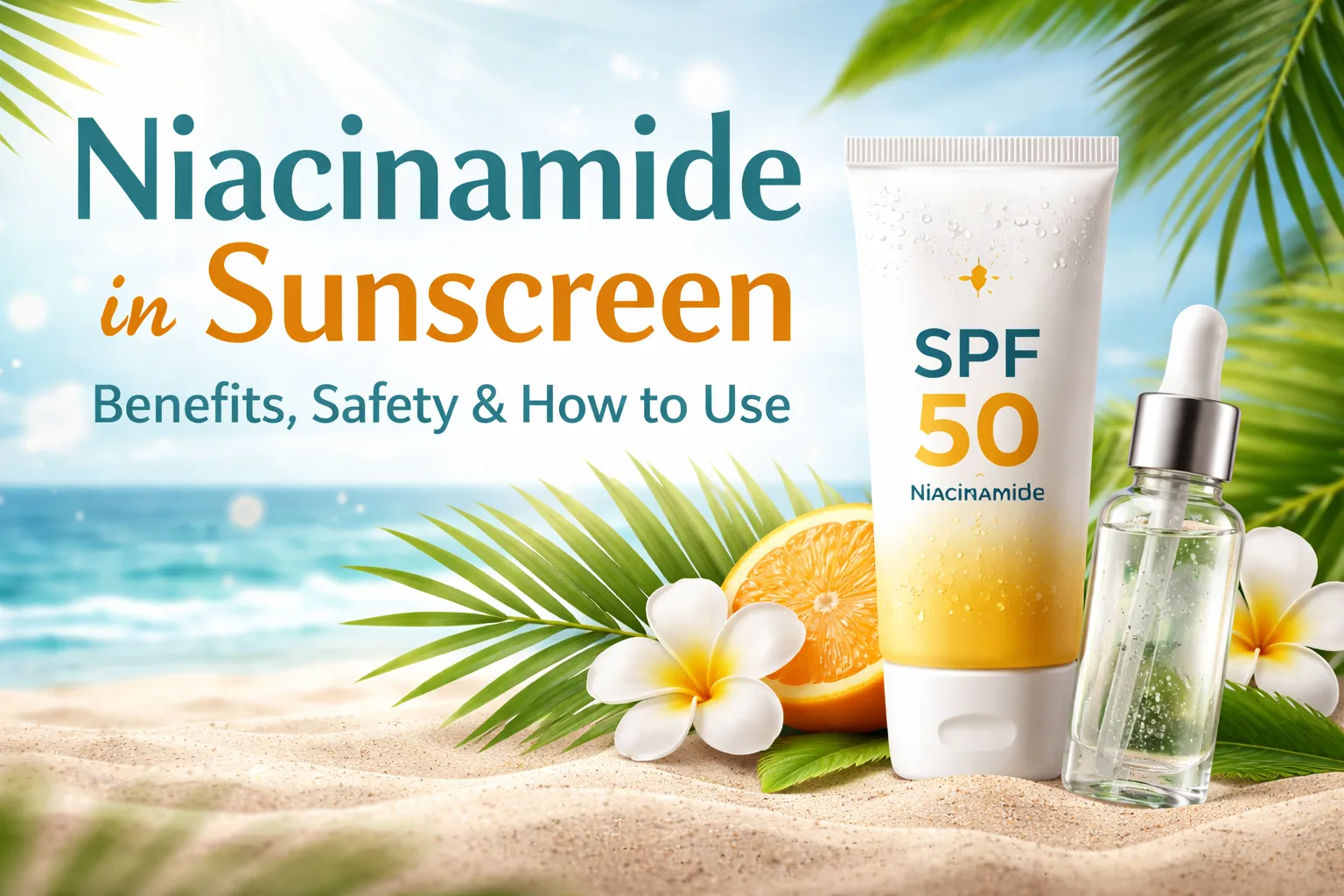In the ever-evolving world of skincare, Indian Millennials and Gen Z are constantly on the lookout for the next game-changer. You’ve tried hyaluronic acid for hydration, niacinamide for brightening, and retinol for anti-aging. But have you heard about prebiotics in skincare?
While probiotics have already made their way into your morning smoothies and kombucha, prebiotics—often overshadowed—are quietly revolutionizing skincare by feeding the good bacteria on your skin. If your barrier feels out of balance, you break out easily, or your glow is nowhere to be found, prebiotics might just be your missing link.
Let’s explore how they work, why your skin loves them, and how to seamlessly add them to your daily routine.
In this Article
- What Are Prebiotics in Skincare?
- Why Your Skin Needs Prebiotics
- How to Incorporate Prebiotics in Your Routine
- Prebiotics vs. Probiotics vs. Postbiotics
- Best Skin Types for Prebiotic Skincare
- DIY Prebiotic Skincare? Proceed with Caution
- Complement Prebiotics with the Right Routine
- The Bottom Line: Are Prebiotics Worth It?
- FAQs About Prebiotics in Skincare
- Keep The Vibe Going
What Are Prebiotics in Skincare?
Understanding the Skin Microbiome
Your skin is home to billions of bacteria, fungi, and other microorganisms—collectively known as the skin microbiome. This ecosystem keeps your skin balanced, protected from environmental damage, and less prone to irritation.
Prebiotics, Activated!
Prebiotics are non-living, plant-based ingredients that serve as food for the good bacteria on your skin. By feeding this friendly flora, prebiotics help maintain a balanced microbiome, which is key to healthy, radiant skin.
Unlike probiotics (which introduce live bacteria), prebiotics nourish the bacteria you already have—think of them as compost for your skin’s garden.
Why Your Skin Needs Prebiotics
1. Supports a Healthy Skin Barrier
Prebiotics in skincare enhance the function of your skin barrier by reinforcing its natural defenses. This leads to better moisture retention and less sensitivity.
2. Reduces Inflammation and Redness
A balanced microbiome means less opportunity for harmful bacteria to wreak havoc—translating to fewer breakouts, less irritation, and a calmer complexion.
3. Boosts Effectiveness of Other Actives
By fortifying your skin’s natural environment, prebiotics can help other active ingredients—like Vitamin C or peptides—perform more effectively.
How to Incorporate Prebiotics in Your Routine
Start Simple
Look for toners, serums, or moisturizers labeled with “microbiome-friendly” or “contains prebiotics.” These are typically gentle and formulated to support barrier health.
Product Picks:
Dr. Sheth’s Cica & Ceramide Overnight Repair Serum – Contains prebiotic inulin to nourish your skin’s microbiome.
Minimalist Sepicalm 03% Moisturizer – Lightweight, soothing, and enriched with prebiotics.
Dot & Key Hyaluronic + Ceramide Barrier Repair Hydrating Face Moisturizer – This lightweight moisturizer blends probiotics, ceramides, and hyaluronic acid to hydrate deeply and strengthen the skin’s natural barrier.
Pair these with your existing routine but avoid using them immediately after strong actives like AHAs or BHAs to prevent microbiome disruption.
Also Read: How to Build a Skincare Routine with AHAs and BHAs
Prebiotics vs. Probiotics vs. Postbiotics
| Term | Definition | Role in Skincare |
|---|---|---|
| Prebiotics | Food for good bacteria | Feed beneficial microbes for balance |
| Probiotics | Live good bacteria | Add beneficial microbes to the skin |
| Postbiotics | Byproducts of good bacteria | Deliver direct skin benefits like calming |
While probiotics need careful storage, prebiotics are more stable and easier to formulate into skincare products.
Best Skin Types for Prebiotic Skincare
Oily/Acne-Prone Skin
Prebiotics can help rebalance oil production by discouraging bad bacteria that contribute to breakouts.
Sensitive Skin
They offer a gentle way to strengthen the skin without harsh ingredients—perfect for reactive skin types.
Dry/Dehydrated Skin
By supporting the barrier, prebiotics improve moisture retention and skin smoothness over time.
DIY Prebiotic Skincare? Proceed with Caution
While DIY yogurt or honey masks might sound like a natural way to feed your skin, their benefits as prebiotics are minimal and may even disrupt your microbiome if used incorrectly. Stick to dermatologist-tested formulas for best results.
However, if you’re a fan of natural skincare, check out Hale and Belle’s DIY Beauty Recipes for safe, skin-friendly options.
Complement Prebiotics with the Right Routine
To maximize the benefits of prebiotics in skincare, pair them with:
- Gentle cleansers: Harsh soaps strip your microbiome. Try sulfate-free cleansers.
- Barrier-repair moisturizers: Ingredients like ceramides and fatty acids enhance the prebiotic effect.
- SPF: Your skin’s microbiome thrives when it’s protected from UV damage.
Explore Hale and Belle’s Skincare Reviews to discover products that support microbiome health.
The Bottom Line: Are Prebiotics Worth It?
Absolutely. While prebiotics in skincare may not deliver instant visible results like some actives, they work on a deeper level—improving skin health over time. For Indian Millennials and Gen Zs looking to future-proof their skin, prebiotics offer a smart, science-backed approach to long-term glow.
FAQs About Prebiotics in Skincare
Q1. What are the best products with prebiotics in skincare available in India?
Some great options include Dr. Sheth’s Cica & Ceramide Serum and The Moms Co. Vita Rich Face Cream. These are effective, accessible, and microbiome-friendly.
Q2. Can prebiotics in skincare help with acne?
Yes. By promoting a balanced skin microbiome, prebiotics can reduce the presence of acne-causing bacteria and calm inflammation.
Q3. Are prebiotics better than probiotics in skincare?
Not necessarily better, but more stable and easier to formulate. They complement each other, but prebiotics are ideal for daily, fuss-free skincare routines.
Want the latest scoop, exclusive deals, and skincare secrets? Follow us on WhatsApp and never miss a glow-up moment!




